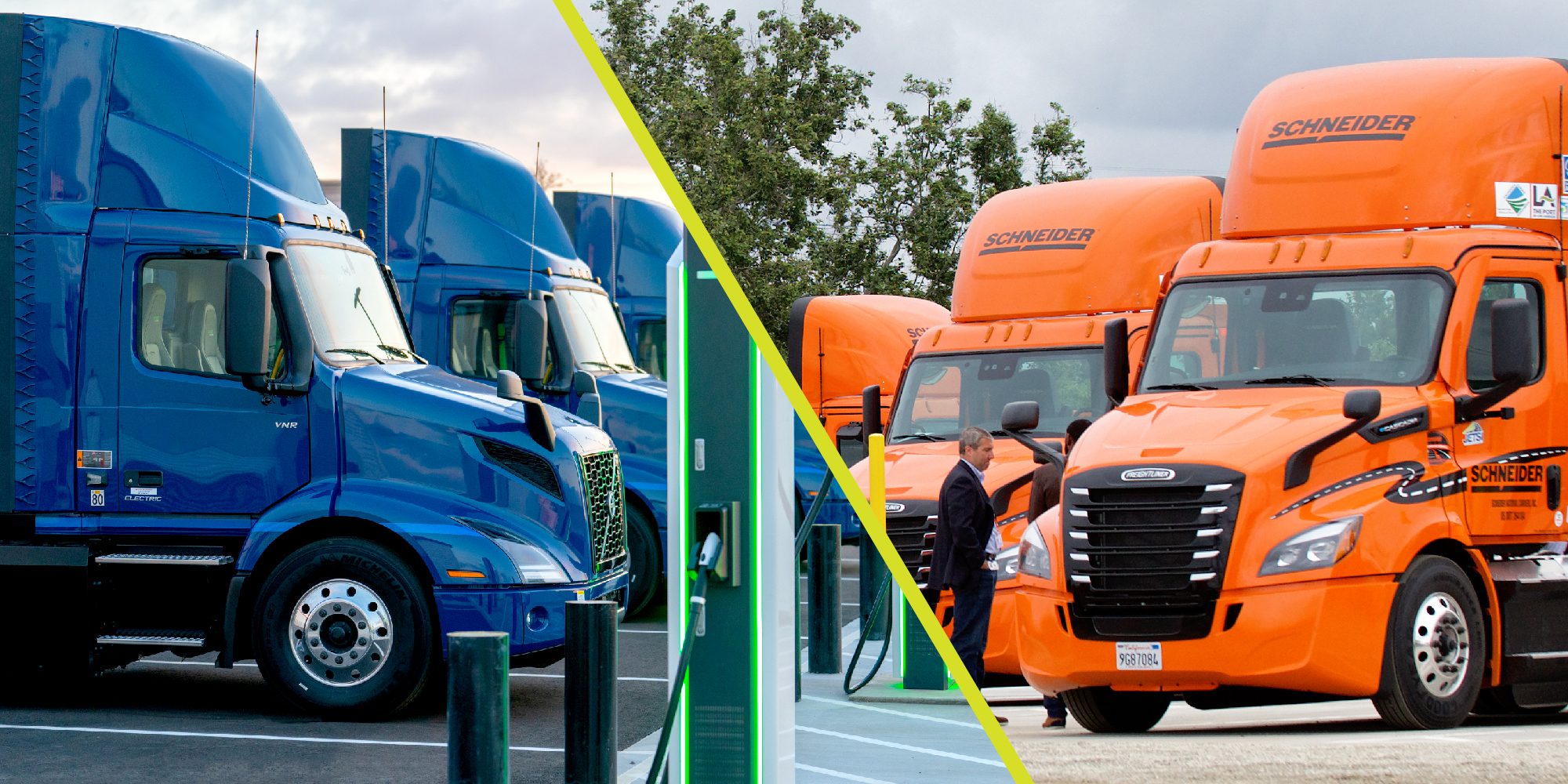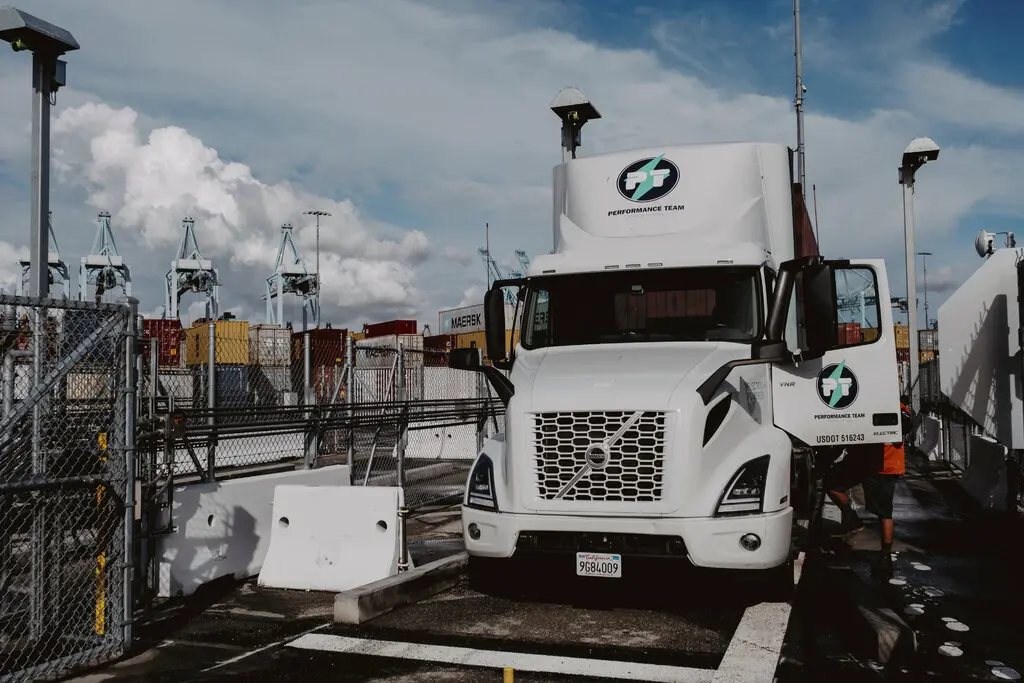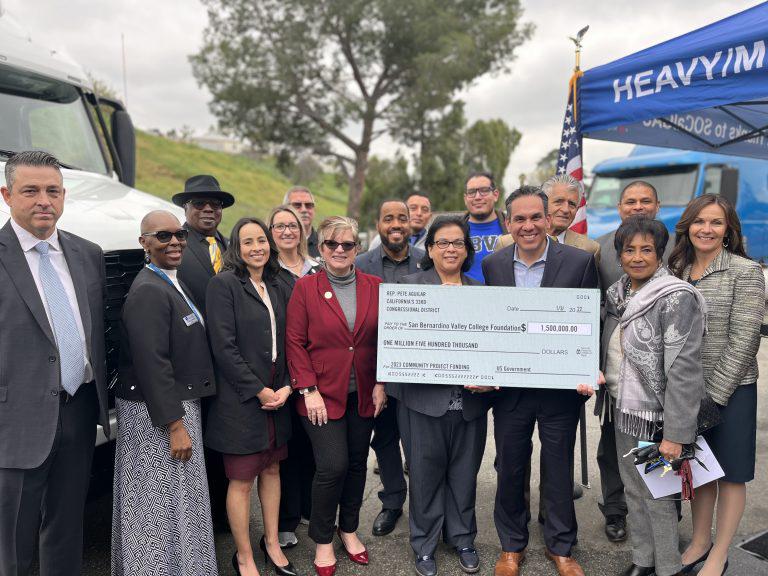
With the battery-electric vehicle maintenance industry expected to have a 17% growth in San Bernardino and Riverside counties, many fleets, vehicle manufacturers, and dealerships are looking for talent found in the Automotive Technology program at San Bernardino Valley College (SBVC).
The Automotive Technology Department offers students courses including diesel, electric, and compressed natural gas (CNG) maintenance for light-, medium- and heavy-duty vehicles. These courses are designed to provide the skills and knowledge required for immediate employment for students interested in automotive technology.
Currently 50 students are enrolled in the program, with most classes and class materials provided at no cost to the student. The program has received a total of $4 million in donations of equipment, vehicles, and grant funding to supply students with hands-on experience. The experience the students receive in the electric truck maintenance program helps prepare them for the vehicle and infrastructure technician jobs that are imperative to support the shift to electromobility solutions.
U.S. Representative Pete Aguilar announced in March 2023, a donation of $1,500,000 for the Clean Energy Hybrid and Electric Vehicle (EV) Technician Program in San Bernardino Valley College. The funding is being used to purchase heavy-duty zero-emission trucks and charging stations for students to train and work on.
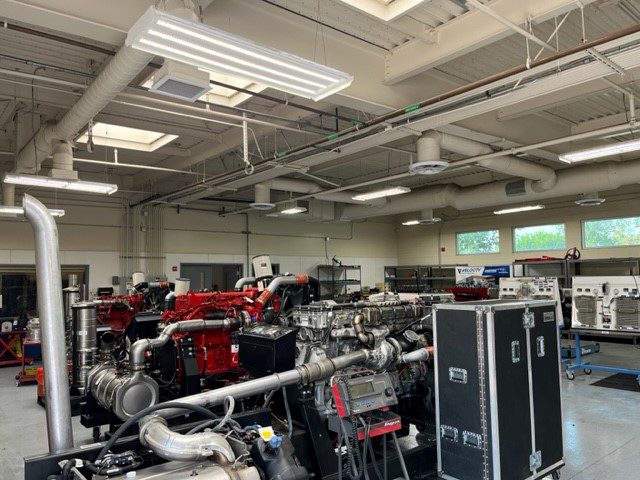
Hands-On Curriculum
To ensure safety of the students operating on electric trucks, significant training is conducted on best practices for high voltage EV systems, and the facility is equipped with personal protective equipment such as electrical gloves, face shields, electrically isolated screwdrivers and wrenches, and hooks to prevent “thermal or static events” when students are working on live, charged vehicles. The Automotive Technology program is fortunate to have received a truck from 4GEN Logistics at the Port of Long Beach and used grant funding to purchase a Freightliner eCascadia and a Volvo VNR Electric for students to practice on.
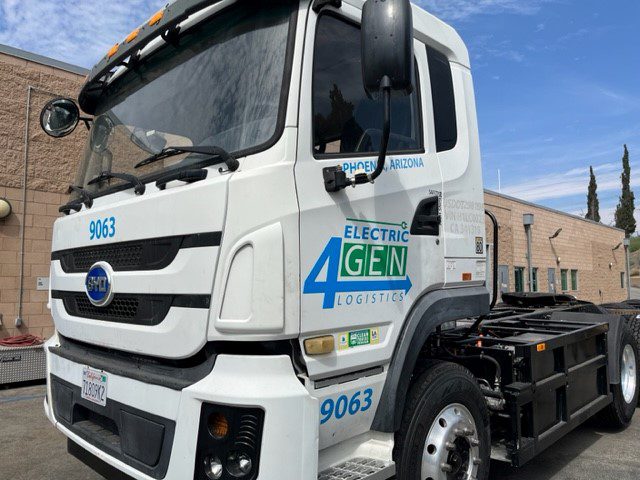
“All the components we know in a gasoline vehicle, base compressors, power steering, brake suspension and climate maintenance, run off of different electric motors in an electric truck,” says Automotive Technology Department Chair, Kenny Melancon. “It’s important to maintain the internal temperature to keep the motors running, and for students to identify which system needs to be repaired when in the field.”
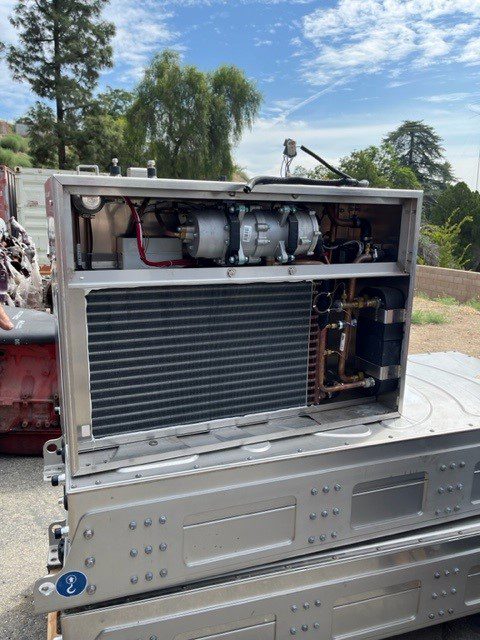
Automotive Technology students can even utilize a commercial truck driving simulator equipped with visuals of major Southern California interstate freeways, surround audio components, gear shifts, and are taught economy driving techniques to preserve battery life. The simulator allows students to obtain a full perspective of how the trucks they have repaired run, with feedback on how the internal systems perform on the road.
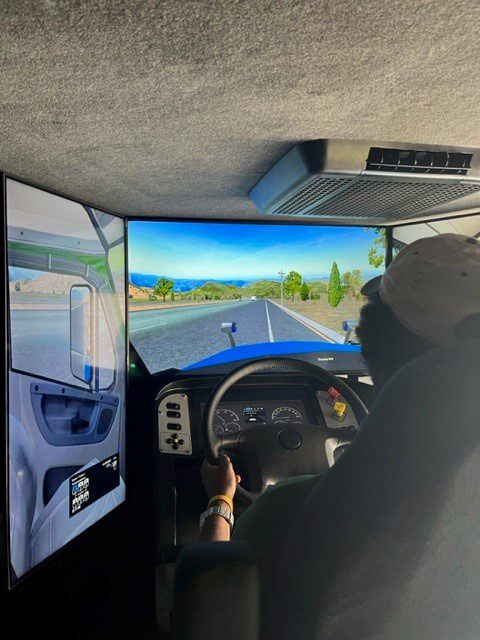
Beyond truck operations, the Automotive Technology program includes electrical engineering classes for students to repair charging infrastructure for passenger and commercial vehicles.
“A majority of the charging stations are app based now, so we provide our students with computer programming classes along with electrical engineering classes for them to be able to repair all aspects of the charging systems,” said Melancon.
SBVC collaborates with Pacific High School’s Transportation and Advanced Technology Center, providing a pathway for high school students to receive college credit for commercial vehicle maintenance classes. Students enrolled in the Automotive Technology program attend four-week courses covering AC and DC electric motors, battery regeneration, electrical engineering and infrastructure maintenance, high voltage safety, and a series of hands-on labs. The program also emphasizes the importance of temperature maintenance within battery-electric vehicles and being able to power down battery systems to identify internal issues.
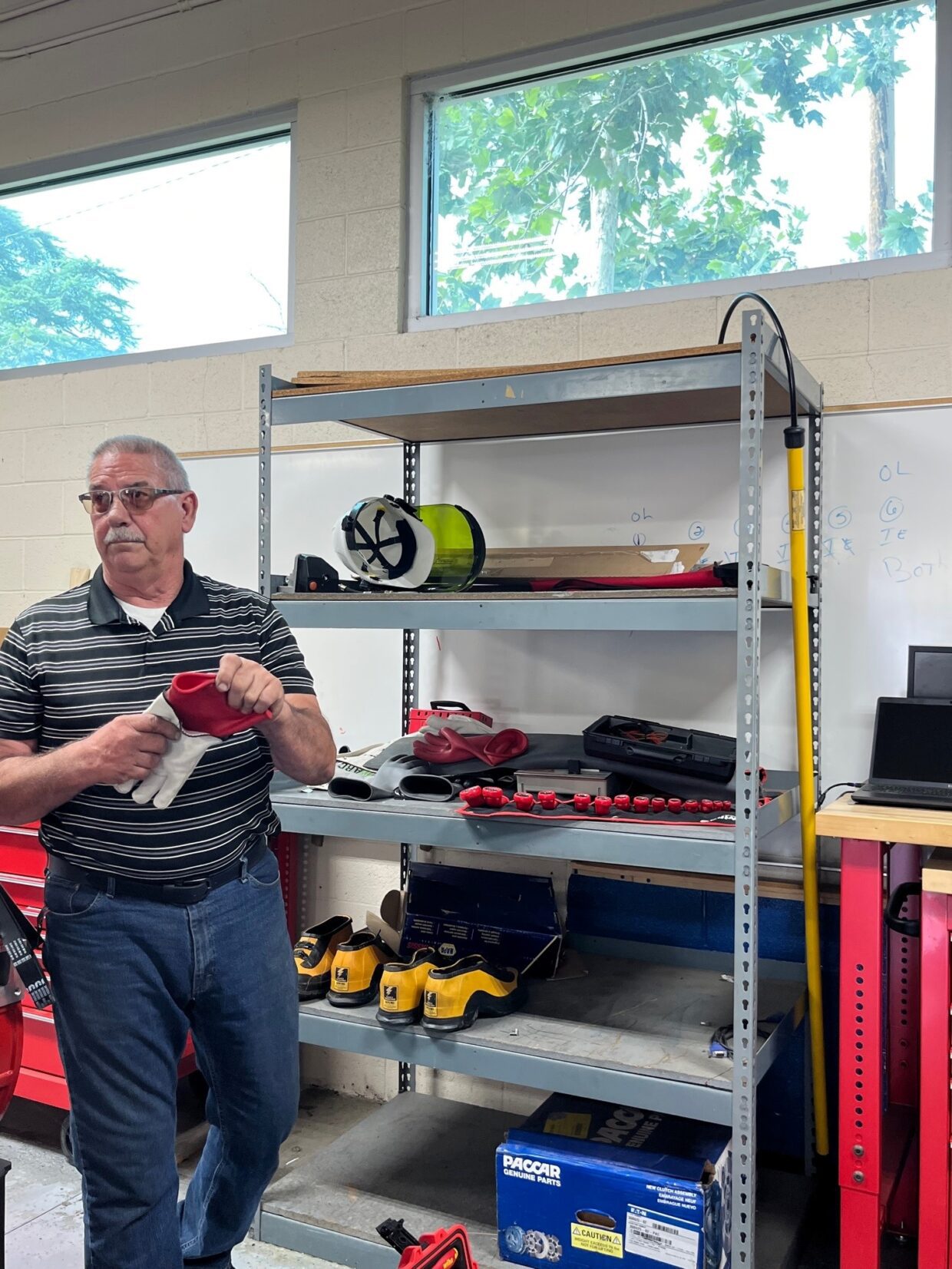
Industry Challenges in Zero-Emission Deployments
One of the major challenges the program (and trucking industry) faces is that the site outlets only provide 208 volts of electrical service, and charging battery-electric commercial vehicles with DC fast chargers typically requires 480-volt service. With SBVC unable to install DC fast chargers to charge trucks, they have used dealerships in the region that offer charging for customers, but it is difficult to coordinate availability for class schedules. The Automotive Technology department is purchasing a generator to power the Level 2 chargers already on site.
Another issue the industry is facing is the rising cost of charging services, charging infrastructure, and electric vehicles.
“Prices at charging stations are higher than ever and having to charge a vehicle every two days makes it costly and time consuming for a program like ours,” says Melancon. “The Inland Empire has a scarcity of charging options, and even though Southern California traffic is the perfect place for trucks to take advantage of regenerative braking to return power to the batteries, there aren’t enough chargers for trucks to stay on the road right now. This creates opportunity for those who are trained on installation of EV chargers.”
Accelerating Towards a Zero-Emission Future
Looking forward, the Automotive Technology program will be expanding its curriculum covering hydrogen fuel systems and are expecting a Cummins vehicle and engine by Q2 2024 to support that curriculum.
Some program alumni have noted that several fleets, OEMs, and maintenance centers develop talent from within and have specific certifications for their unique technology, but SBVC students can leave the program with a Volvo, Daimler, and, soon to include, Rivian certification. Individual certifications are not required in the program, as SBVC wants to ensure students are completing the program as well-rounded and capable techs, able to work with many different vehicle systems.
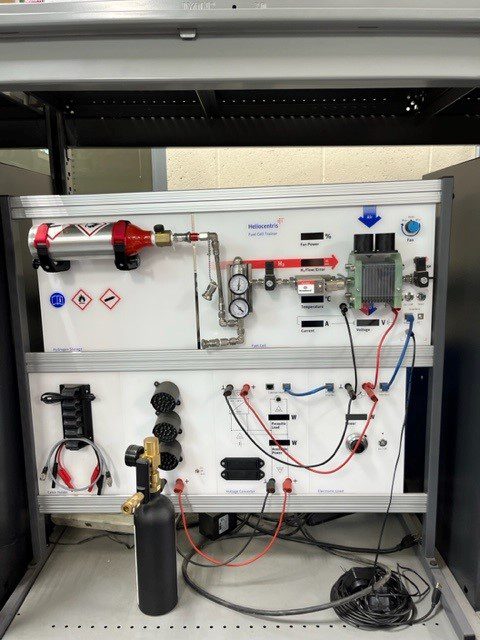
“It’s an exciting time to be involved in clean transportation, with the regulations and expanding technology, so we hope the program can grow alongside the industry and help expand for more educational and professional opportunities,” said Melancon. “Beyond our hands-on curriculum, professional development opportunities in the industry thanks to projects like JETSI have educated the students on their career path options after completing the program.”
The JETSI project works closely with San Bernardino Valley College to connect Automotive Technology students with industry leaders in sustainable transportation to learn about the workforce the students are entering and foster connections for potential job opportunities. The JETSI project aims to help develop the growing workforce of battery-electric truck and charging infrastructure technicians to further the adaptation of zero-emission technology
To learn more about San Bernardino Valley College’s Automotive Technology program, visit https://www.valleycollege.edu/academics/pathways/mit/automotive-tech/
